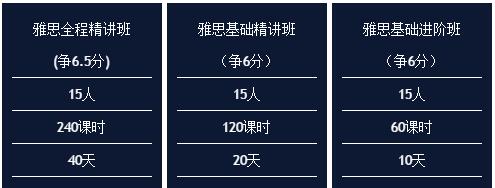劍橋雅思4Test1passage2閱讀題目+答案解析
2017/3/30 14:45:16來源:新航道作者:新航道
摘要:劍橋雅思系列是同學(xué)們在備考中最好的教材之一,所以同學(xué)們在備考的時候是要準(zhǔn)備一些這方面的資料的。新航道雅思小編上篇分享的劍橋雅思閱讀4Test1閱讀passage2原文和譯文,此篇是相應(yīng)文章的題目與答案解析,即劍橋雅思4Test1passage2閱讀題目+答案解析。
劍橋雅思系列是同學(xué)們在備考中最好的教材之一,所以同學(xué)們在備考的時候是要準(zhǔn)備一些這方面的資料的。新航道雅思小編上篇分享的劍橋雅思4Test1passage2閱讀題目+答案解析,此篇是相應(yīng)文章的題目與答案解析。
劍橋雅思4Test1passage2閱讀題目
1. echolocation: the perception of objects by means of sound wave echoes.
Questions 15-21
Complete the table below.
Choose NO MORE THAN THREE WORDS from Reading Passage 2 for each answer.
Write your answers in boxes 15-21 on your answer sheet.
SENSE SPECIES ABILITY COMMENTS
Smell toothed no evidence from brain structure
baleen not certain related brain structures are present
Taste some types poor nerves linked to their 15………are underdeveloped
Touch all yes region around the blowhole very sensitive
Vision 16……… yes probably do not have stereoscopic vision
Dolphins, porpoises yes probably have stereoscopic vision 17………and………
18………
yes probably have stereoscopic vision forward and upward
Bottlenose dolphins yes exceptional in 19………and good in air-water interface
Boutu and beiji poor have limited vision
Indian susu no probably only sense direction and intensity of light
Hearing most large baleen yes usually use 20………; repertoire limited
21………whales and ………whales
yes song-like
Toothed yes use more of frequency spectrum; have wider repertoire
Questions 22-26
Answer the questions below using NO MORE THAN THREE WORDS from the passage for each answer.
Write your answers in boxes 22-26 on your answer sheet.
22 Which of the senses is described here as being involved in mating
23 What species swims upside down while eating
24 What can bottlenose dolphins follow from under the water
25 Which type of habitat is related to good visual ability
26 Which of the senses is best developed in cetaceans
劍橋雅思4Test1passage2閱讀答案解析
答案解析:
Question 15
答案:taste buds
關(guān)鍵詞:taste
定位原文:第1段第5句“Similarly, although at least some cetaceans have taste buds, the nerves serving these have degenerated or are rudimentary.”
解題思路:根據(jù)定位句信息,可知答案是taste buds。
點擊獲取劍橋4雅思閱讀原文+參考譯文+答案解析
Question 16
答案:baleen whales
關(guān)鍵詞:stereoscopic vision
定位原文:第3段第3句“However,the position of the eyes so restricts the field of vision in baleen whales that they probably do not have stereoscopic vision.”
解題思路:根據(jù)定位句信息,可知答案是baleen whales。
Question 17
答案:forward downward (IN EITHER ORDER)
關(guān)鍵詞:Dolphins, porpoises
定位原文:第4段第1句“On the other hand, the position of the eyes in most dolphins and porpoises suggests that they have stereoscopic vision forward and downward.”
解題思路:根據(jù)定位句信息,可知答案是forward和downward。
Question 18
答案:(the) freshwater dolphin(s)
關(guān)鍵詞:forward and upward
定位原文:第4段第2句“Eye position in freshwater dolphins, which often swim on their side or upside down while feeding, suggests that what vision they have is stereoscopic forward and upward.”
解題思路:根據(jù)關(guān)鍵詞定位,可知答案為freshwater dolphin(s)。
劍橋雅思4Text1閱讀答案解析Question 19
答案:(the) water
關(guān)鍵詞:bottlenose dolphin
定位原文:第4段第3句“By comparison, the bottlenose dolphin has extremely keen vision in water. Judging from the way it watches and tracks airborne flying fish, it can apparently see fairly well through the air-water interface as well.”
解題思路:題干中的exceptional和文中的extremely是同義替換,所以根據(jù)定位句答案應(yīng)該為water。
Question 20
答案:(the) lower frequencies
關(guān)鍵詞:most large baleen
定位原文:第6段第3句“Large baleen whales primarily use the lower frequencies and are often limited in their repertoire.”
解題思路:根據(jù)定位句信息,可知答案是(the) lower frequencies。
Question 21
答案:bowhead humpback (IN EITHER ORDER)
關(guān)鍵詞:song-like
定位原文:第6段第4句“Notable exceptions are the nearly song-like choruses of bowhead whales in summer and the complex, haunting utterances of the humpback whales.”
解題思路:根據(jù)song-like定位到該句話,可知答案為bowhead和humpback。
Question 22
答案:touch/sense of touch
關(guān)鍵詞:mating
定位原文:第2段第3句“This contact may help to maintain order within a group, and stroking or touching are part of the courtship ritual in most species.”
解題思路:這里的mating和文中的courtship ritual是同義替換,所以答案應(yīng)為touch或者sense of touch。
Question 23
答案:freshwater dolphin(s)
關(guān)鍵詞:upside down/eating
定位原文:第4段第2句“Eye position in freshwater dolphins, which often swim on their side or upside down while feeding...”
解題思路:根據(jù)定位句信息,可知答案是freshwater dolphin(s)。
Question 24
答案:airborne flying fish
點擊獲取劍橋4雅思閱讀原文+參考譯文+答案解析
關(guān)鍵詞:follow/under the water
定位原文:第4段第3句“By comparison, the bottlenose dolphin has extremely keen vision in water. Judging from the way it watches and tracks airborne flying fish, it can apparently see fairly well through the air-water interface as well.”
解題思路:題目中的“follow”和文中的“tracks”是同義替換,根據(jù)定位句信息,可知答案是airborne flying fish。
Question 25
答案:clear water(s)/clear open water(s)
關(guān)鍵詞:habitat/good visual ability
定位原文:第5段第句“For example, vision is obviously more useful to species inhabiting clear open waters than to those living in turbid rivers and flooded plains.”
解題思路:根據(jù)定位句信息,可知答案是clear open water(s)。
Question 26
答案:(the) acoustic sense
關(guān)鍵詞:best/cetaceans
定位原文:第6段第1句“Although the senses of taste and smell appear to have deteriorated, and vision in water appears to be uncertain, such weaknesses are more than compensated for by cetaceans’ well-developed acoustic sense.”
解題思路:根據(jù)定位句信息,可知答案是acoustic sense。
以上就是小編為大家?guī)黻P(guān)于《劍橋雅思4真題》閱讀部分供大家參考,新航道雅思資料頻道將第一時間為考生發(fā)布最全、最新、最專業(yè)的雅思資訊及雅思考試資料及機經(jīng).
更多劍橋雅思的相關(guān)信息,請關(guān)注上海新航道雅思頻道 。
如需劍橋雅思相關(guān)資料請與上海新航道雅思頁面 的“在線客服”聯(lián)系。
或在下方注冊表格內(nèi),請?zhí)峤弧靶彰?電話+郵箱”,我們將于24小時內(nèi)發(fā)送給你!
免費獲取資料
熱門搜索: 上海雅思培訓(xùn)哪家好| 上海雅思封閉班| 上海雅思一對一培訓(xùn)| 雅思全日制培訓(xùn)| 上海新航道| 2022年雅思寫作話題題庫+范文|
熱報課程
- 雅思課程
| 班級名稱 | 班號 | 開課時間 | 人數(shù) | 學(xué)費 | 報名 |
|---|
免責(zé)聲明
1、如轉(zhuǎn)載本網(wǎng)原創(chuàng)文章,情表明出處
2、本網(wǎng)轉(zhuǎn)載媒體稿件旨在傳播更多有益信息,并不代表同意該觀點,本網(wǎng)不承擔(dān)稿件侵權(quán)行為的連帶責(zé)任;
3、如本網(wǎng)轉(zhuǎn)載稿、資料分享涉及版權(quán)等問題,請作者見稿后速與新航道聯(lián)系(電話:021-64380066),我們會第一時間刪除。
全真模擬測試
姓名:
電話:
雅思動態(tài)

DeepSeekx雅思官方:中國考生...
制作:每每









